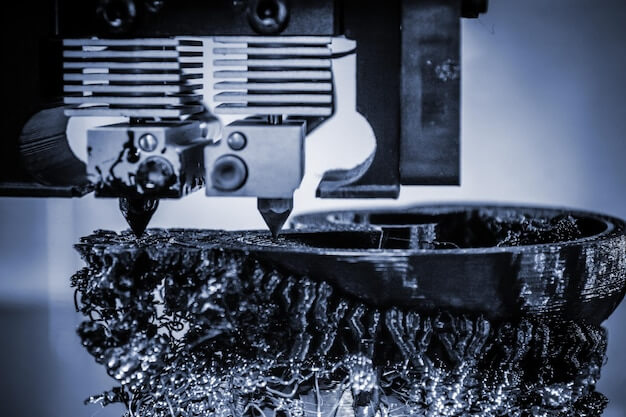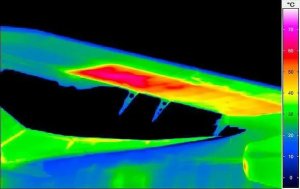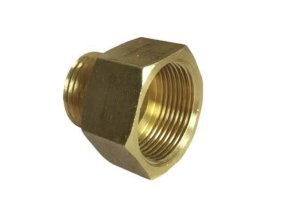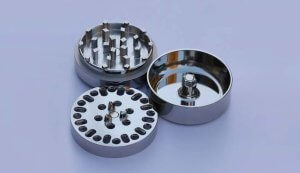Introduction to Stainless Steel Machining in the Medical Devices Industry
The medical devices industry has made significant strides in operational efficiency and patient safety, largely due to advancements in stainless steel machining. This involves the computerized shaping of stainless steel into components needed for critical equipment like surgical tools and implants, using Computer Numerical Control (CNC) techniques.
Precision is paramount when it comes to creating medical devices – absence of which could lead to faulty devices causing dire consequences. It’s imperative that every single component created through CNC machining meets meticulously defined specifications.
In addition to precision, compliance with regulatory standards set by institutions like the Food and Drug Administration (FDA) is critically important. Every step of the production process must adhere to these guidelines ensuring quality control and patient safety.
- Critical aspects include:
- Precision: Ensuring each part fits perfectly within complex medical tools or machinery.
- Compliance: Conducting operations per approved standards, eliminating chances of error that may risk human lives.
Understanding and Implementing CNC Techniques in Stainless Steel Machining for Medical Devices
CNC techniques play a crucial role in stainless steel machining for medical devices. The precision and compliance offered by CNC machining ensure the production of high-quality and reliable medical components. By leveraging CNC techniques, manufacturers can meet the stringent requirements of the medical industry while maintaining the necessary precision and accuracy.
Benefits of Using Stainless Steel in Medical Devices
The use of stainless steel in medical devices brings numerous benefits due to the unique properties it possesses. Being highly resistant to corrosion, this robust material promotes a longer lifespan for devices, reducing replacement costs over time. Its durability and strength enable these devices to withstand rigorous use while maintaining ergonomic functionality. Also, the ease of sterilization with stainless steel is critical because it contributes notably to patient safety by preventing infections. It’s non-porous surface inhibits bacterial growth, hence, easy cleaning and high hygienic standards are additional advantages.
To illustrate, consider the use of stainless steel in surgical instruments like scalpels. The corrosive resistance characteristic ensures that despite repeated exposure to bodily fluids – which often contain salts and oxygen that could lead to corrosion – the scalpel remains intact and functional. Coupled with the physical demand during surgeries, the durability and strength features come into play allowing the device to cut through body tissues without deformation or compromise. Lastly, its ease of sterilization enables the quick turn-around necessary between operations while promoting a bacteria-free environment. Therefore, each property of stainless steel adds a layer of efficiency, effectiveness, and most importantly, safety in medical appliance applications.
Understanding Precision in Stainless Steel Machining
Precision in the context of stainless steel machining refers to the exactness or accurate replication of specific dimensions, measurements, and designs while shaping parts & components. In the medical field, this precision is vital due to its impact on patient safety and the successful functioning of medical appliances. Ensuring accurate design can prevent device malfunction, minimize risk during surgical procedures, and even save lives.
- The Necessity for Precise Measurements and Designs: Device precision directly influences the overall performance and reliability of medical machinery. For instance, a slightly skewed measurement in an implant could cause discomfort or harm to the patient; if a catheter diameter were inaccurately produced, effective treatment delivery might be compromised.
- CNC Techniques Role: Computer Numerical Control (CNC) techniques play a crucial role in ensuring such high-level precision through pre-programmed software dictating the movements of factory tools and machinery with extreme accuracy. This computer-controlled process eliminates potential human error, resulting in highly precise and consistent output often required for complex medical devices.
Compliance Standards for Stainless Steel Machining in Medical Devices
Maintaining strict compliance with regulatory standards is a critical factor when it comes to stainless steel machining for medical devices. This includes mandatory quality control measures and certifications such as ISO 13485 and regulations under the Food and Drug Administration (FDA). The role of Computer Numerical Control (CNC) cannot be understated in this process, as CNC machining techniques provide precision and conformity necessary to meet these stringent standards.
- ISO 13485:The international standard that outlines the requirements for a comprehensive quality management system for the design and manufacture of medical devices.
- FDA Regulations: These ensure that all medical device manufacturers adhere to good manufacturing practices which improve the safety, effectiveness, quality, and security of human and veterinary drugs.
CNC technologies can assist meeting these compliance requirements through their superior accuracy in cutting and shaping materials, repeatability ensuring each part is identical, programming flexibility enables fast reconfiguration to match changes in designs or specification, and capability of working with diverse range of materials — essential features in the production of medical instruments or implants.
Non-compliance, on the other hand, can have serious consequences. It can lead not only to production shutdowns and costly fines, but also legal liabilities and potential harm to patients due to faulty or sub-standard devices. Therefore, guaranteeing precision and adherence to regulatory norms becomes an indispensable part of stainless steel machining for medical devices.
Challenges in Stainless Steel Machining for Medical Devices
In stainless steel machining for medical devices, several challenges pose potential difficulties. First, due to the hardiness and toughness of stainless steel, the cutting process tends to be more energy-intensive compared to other materials, leading to faster tool wear and tear. Secondly, achieving high precision with intricate designs is another challenge faced in this process, as it requires advanced CNC techniques and specialized tools. Moreover, maintaining sterility during every stage of production is crucial yet challenging, as even minor contamination can lead to serious issues once implanted into the human body.
Overcoming these obstacles is vital for ensuring patient safety and enhancing the longevity and performance of medical devices. Tools made from super-hard materials like carbide or diamond can offer higher resistance to wear, thus helping cope with stainless steels’ hardness. Innovations in CNC programming have also allowed complex geometries and extreme precision to be achieved, while rigorous sterilization protocols ensure cleanliness throughout every stage of production.
- High Material Hardness: Leads to faster tool wear.
- Precision Requirements: Intricate designs need advanced CNC techniques and specialized tools.
- Sterilization Needs: Minimizing contamination risks necessitates strict cleanliness protocols.
For example, when developing a hip replacement device, the stainless steel components must not only fit perfectly within the patients’ anatomy, but also withstand constant motion, load-bearing, and possible exposure to bodily fluids without degradation – highlighting why overcoming these machining challenges holds immense significance.
Other Articles You Might Enjoy
- Custom Precision Machining of Stainless Steel for Medical Device Applications: What to Consider?
Custom Precision Machining of Stainless Steel for Medical Devices: A Crucial Component in Healthcare In the medical industry, custom precision machining plays a vital role in creating highly specific and…
- Custom Precision Machining of Stainless Steel for Medical Device Applications: What to Consider?
Custom Precision Machining of Stainless Steel for Medical Devices: A Crucial Component in Healthcare In the medical industry, custom precision machining plays a vital role in creating highly specific and…
- Stainless Steel Machining for Aerospace: Precision and Challenges in CNC Operations?
Introduction: Brief Overview of CNC Machining and Its Importance in the Aerospace Industry Computer Numerical Control (CNC) machining is a modern manufacturing process using pre-programmed computer software to control movement…
- Leveraging CNC Machining for Medical Devices: Titanium vs. Stainless Steel Materials
CNC Machining in Medical Device Manufacturing: An Introduction Computer Numerical Control (CNC) machining is a critical practice within the field of medical device manufacturing. This advanced technology allows for precision-engineering,…
- Types of Stainless Steel and Stainless Steel Grades
Stainless steel, renowned for its corrosion resistance, is a vital material in various industries, from construction to culinary tools. This article delves into the types of stainless steel and their…
- Stainless Steel vs. Aluminum in CNC Machining: Pros and Cons
CNC Machining: The Role of Stainless Steel and Aluminum Computer Numerical Control (CNC) machining is a groundbreaking method in manufacturing that involves precise computer commands to manipulate and control tools…









